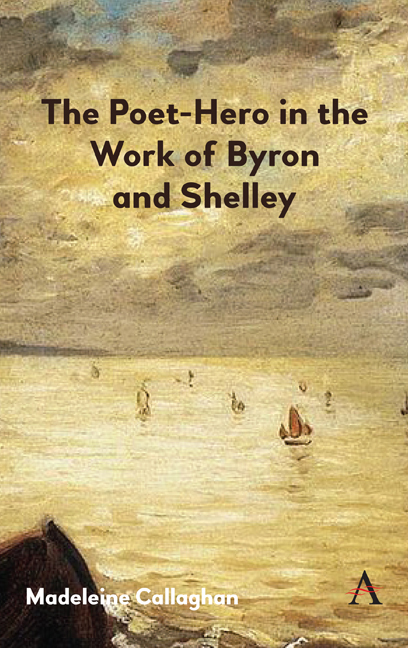Introduction: The Poet-Hero: ‘Who shall trace the void?’
Published online by Cambridge University Press: 30 March 2019
Summary
The arresting sally that begins Don Juan sees Byron's narrator insist on the hero as the centre and circumference of his self-proclaimed epic:
I want a hero: an uncommon want,
When every year and month sends forth a new one,
Till, after cloying the gazettes with cant,
The age discovers he is not the true one;
Of such as these I should not care to vaunt,
I'll therefore take our ancient friend Don Juan,
We all have seen him in the pantomime
Sent to the devil, somewhat ere his time.
(Don Juan I. 1: 1– 8)With a flourish, Byron's narrator foregrounds two meanings of ‘want’. He immediately asserts himself as a narrator intent on holding the reader's attention with his verbal virtuosity, even to the extent of excluding the hero he claims to want. Rather than seeming secondary and passive, he is the active figure, the shaping power and the central character of Don Juan. Byron leaves the reader with the impression that the narrator could have chosen another hero and, more importantly, he establishes that the hero needs the narrator. The balance of power is shifting but undecided: the narrator's expressive power eclipses the hero, yet the narrator requires a hero for his epic. The narrator's dominance over his hero remains incomplete. Placing hero and narrator alongside one another, Byron draws the reader's attention to the symbiosis between them: word and deed vie for dominance in the work as the relationship between poet and hero becomes the animating force of Don Juan.
Shelley is equally compelled by the relationship between poet and hero, bringing the two figures together in his poetry and drama. He expands Wordsworth's sense that the poet is ‘endued with more lively sensibility, more enthusiasm and tenderness, who has a greater knowledge of human nature, and a more comprehensive soul, than are supposed to be common among mankind’ to still greater heights by underscoring the responsibility of the poet to be both legislator and prophet in his Defence of Poetry, where word must struggle to achieve the status of deed in his poetry. For Shelley, as for Byron, the poet-hero remains an exhilarating and perilous challenge as both poets experiment with versions of the poet as hero.
- Type
- Chapter
- Information
- The Poet-Hero in the Work of Byron and Shelley , pp. 1 - 16Publisher: Anthem PressPrint publication year: 2019

